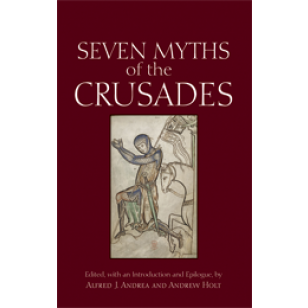On Friday of this week, the history department will celebrate the many books recently published by members of our department, and their authors. Members of the UVM community and the general public are cordially invited to join us at 4 PM on January 29 at Billings Library Apse for free food and brief remarks by several of the authors.
As part of our celebration, this week on our blog we will be featuring short commentaries by the authors on their books, and the research and writing that went into producing them.
In this third installment, we hear from Professors Alfred Andrea and James Overfield.
Professor Andrea specializes in medieval Europe and global history.
Professor Overfield specializes in Global, Renaissance and Reformation and European intellectual history.
Together, they have written a book that was recently published in a new edition:
Andrea, Alfred J., and James H. Overfield, The Human Record: Sources of Global History, 2 vols, 8th ed. (Boston: Cengage, 2014).
From the Professors Andrea and Overfield:
“This is a two-volume collection of primary source documents and artifacts relating to the span of world history from ca. 4000 BC to today arranged thematically and chronologically. First appearing in 1989, The Human Record was one of the first textbooks from a major publisher in what was then the newly emerging field of world history. Now in its eighth edition, it remains the leading primary source reader for the introductory World History course.”
Professor Andrea has also recently published a book he co-edited with Andrew Holt:
Andrea, Alfred, and Andrew Holt, eds., Seven Myths of the Crusades (Cambridge, MA: Hackett, 2015)
One reviewer wrote:
“Seven Myths of the Crusades‘ rebuttal of the persistent and multifarious misconceptions associated with topics including the First Crusade, anti-Judaism and the Crusades, the crusader states, the Children’s Crusade, the Templars and past and present Islamic-Christian relations proves, once and for all, that real history is far more fascinating than conspiracy theories, pseudo-history and myth-mongering. This book is a powerful witness to the dangers of the misappropriation and misinterpretation of the past and the false parallels so often drawn between the crusades and later historical events ranging from nineteenth-century colonialism to the protest movements of the 1960s to the events of 9/11. This volume’s authors have venerable track records in teaching and researching the crusading movement, and anyone curious about the crusades would do well to start here.” –Jessalynn Bird, Dominican University, co-Editor of Crusade and Christendom.

